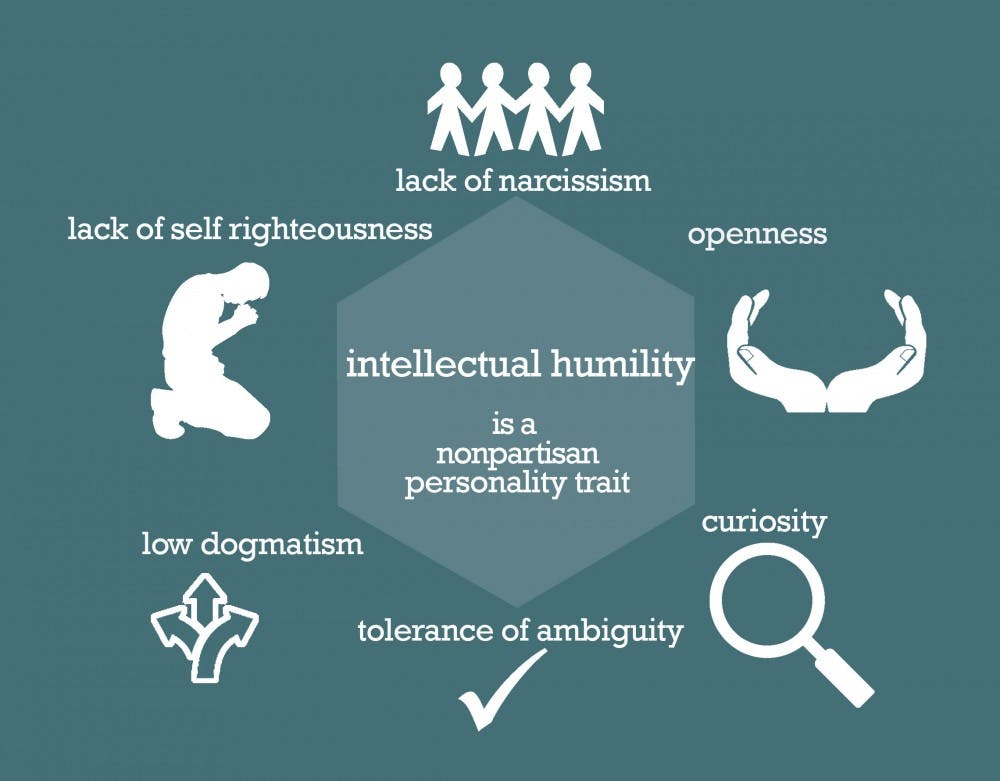Although some attributes might differ across political lines, psychologists have found that both liberals and conservatives share the trait of "intellectual humility."
In a study conducted by Duke researchers, intellectual humility was defined as being aware of the potential of being wrong. Led by Mark Leary, a professor of psychology and neuroscience, the study aimed to determine how different degrees of intellectual humility affect behavior.
"Despite any stereotypes that paint religious people or conservatives as blindly dogmatic or arrogant, there is no correlation between measures of religiosity that we measured or measures of political orientation as far as intellectual humility is concerned," Leary said.
Kate Diebels, a former Ph.D. student and a researcher on the study, said that the extremity of someone’s beliefs—rather than the beliefs themselves—was the greatest indicator of intellectual arrogance.
Leary and his team created a unique intellectual humility scale that correlated the trait with other attributes such as openness, curiosity, tolerance of ambiguity and dogmatism. They then conducted four separate studies to measure intellectual humility in participants with different political and religious views.
In one study, subjects read essays arguing for or against religion and were then asked to rate the author's personality. Intellectually humble individuals—defined using the scale—were less critical of the anti-religion author's character than were intellectually arrogant subjects, the study showed.
Another case sought to measure open-mindedness and tolerance by studying people's views on politicians who change their minds on an issue. Intellectually humble participants were less willing to criticize politicians for changing their mind in light of new evidence, which is pejoratively known as "flip-flopping."
Those with higher levels of intellectual humility also discriminated between strong arguments and weak ones more successfully than intellectually arrogant participants.
In Leary's opinion, the implications of intellectual humility are most noticeable in the political sphere.
"When you look at Congress in Washington over the past few decades, why can't they agree with each other, why can't they compromise?" he said. "It's because people on both sides are insufficiently humble."
Both Leary and Diebels said they believe that the trait can be improved with effort. Diebels urged individuals to remain cognizant of the media sources they use to get information, as many have a clear partisan slant.
Leary added that a college education itself should improve one's intellectual humility.
"It's supposed to show you that you don't know as much as you thought you did and that you can have some confidence in some of what you believe, but you shouldn't have complete confidence in almost anything," he said.
Going forward, Leary said that he hopes that these findings provide a strong methodological framework for future humility studies. This research area is relatively new, he said, with his own interest in it stemming from prior research on excessive self-preoccupation.
"Wouldn't it be odd if every time you disagreed with someone, you were the one that was right?" Leary said. "What's the probability that you're the one who's correct? We have to assume that some of the beliefs in our own lives are wrong, that we are not all more likely to be correct than the other average, well-informed person."
Get The Chronicle straight to your inbox
Signup for our weekly newsletter. Cancel at any time.

